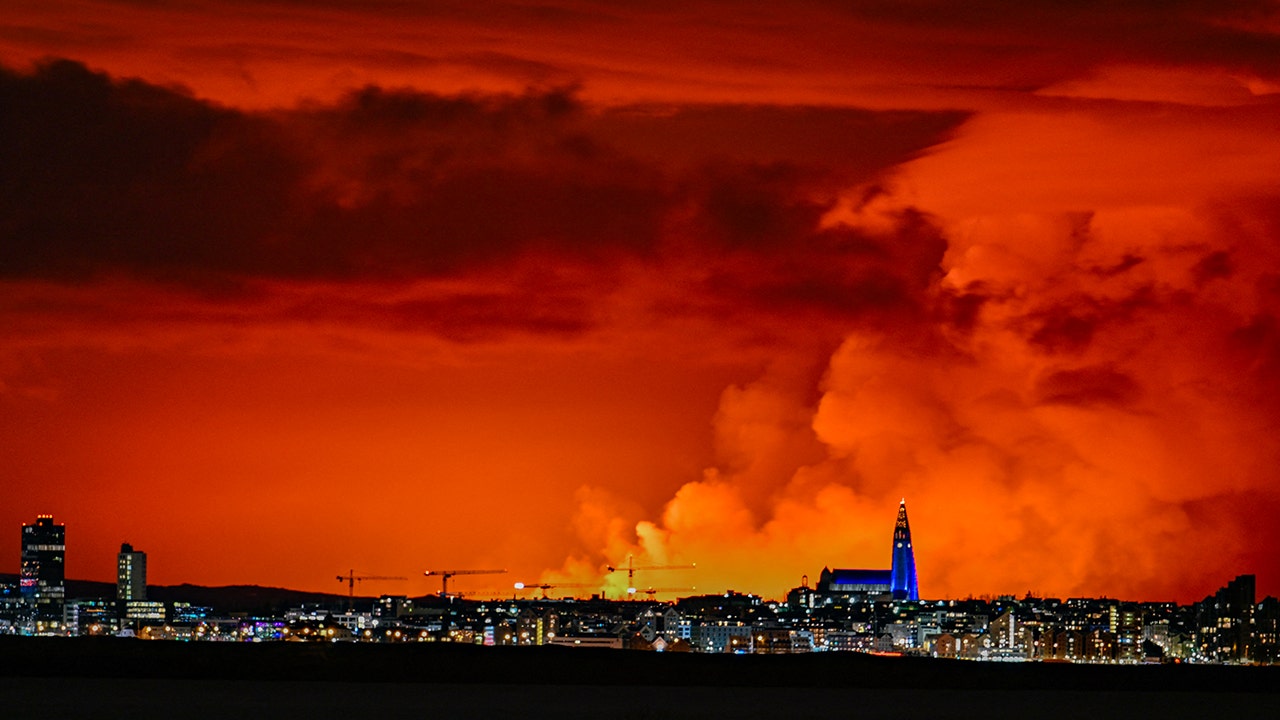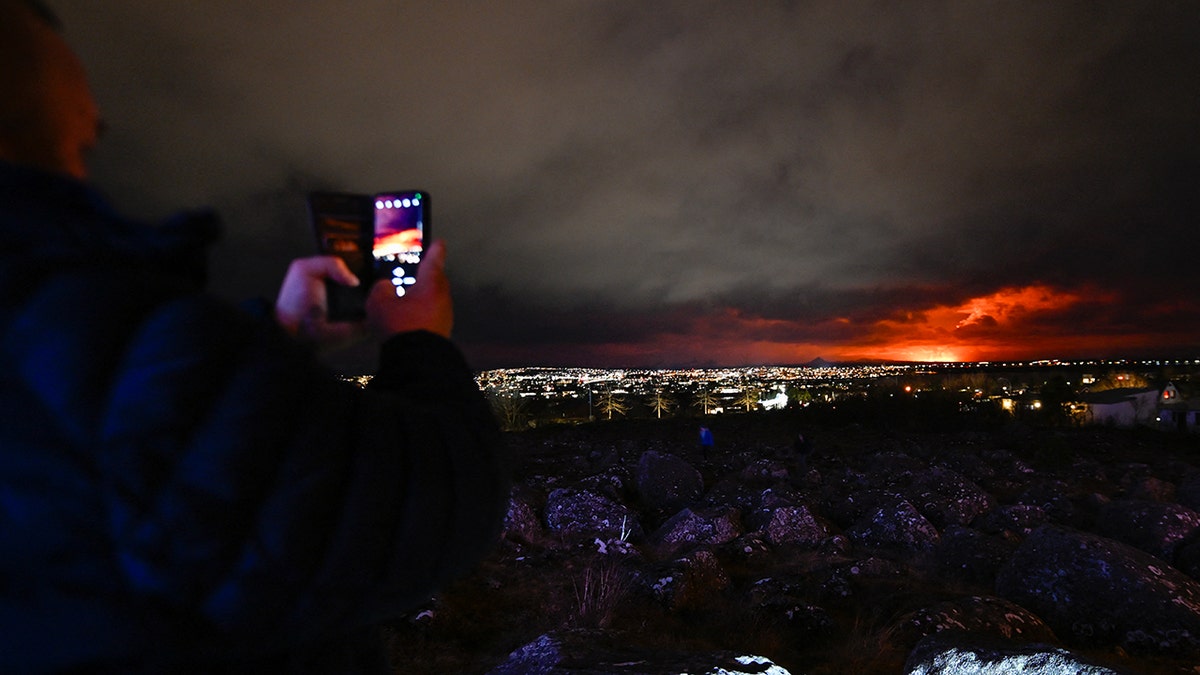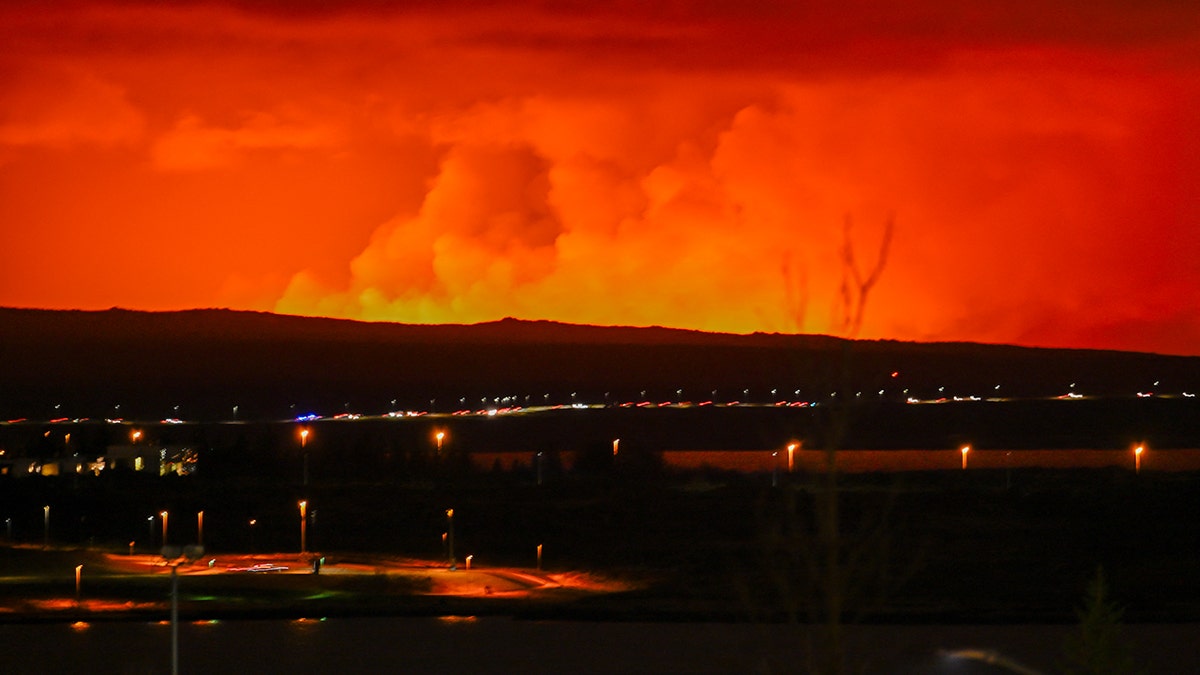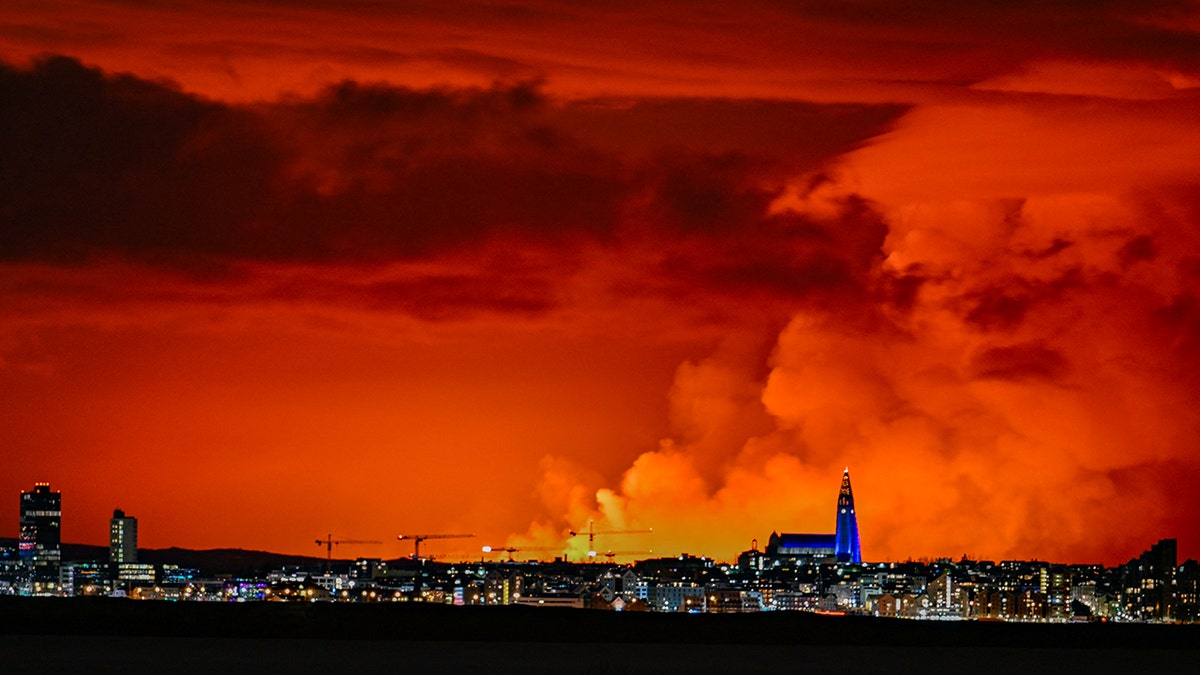
Iceland has experienced a fourth volcano eruption in recent months, spewing fountains of lava into the air. The latest eruption occurred on Reykjanes peninsula north of Grindavik and was declared an emergency by Iceland's Civil Protection Agency. Scientists at the Icelandic Met Office have been monitoring a rise in seismic activity on the Reykjanes Peninsula for weeks, which may signal an upcoming volcanic eruption. The skyline of Reykjavik is against the backdrop of orange coloured sky due to molten lava flowing out from a fissure on the Reykjanes peninsula north of Grindavik. Lava spewed Saturday from a new volcanic fissure on Iceland's Reykjanes peninsula, and one of Iceland's top tourist destinations, the Blue Lagoon luxury geothermal spa shut down after news of the explosion. The town Grindavik has been evacuated since November after a quick succession of erupting volcanoes.




